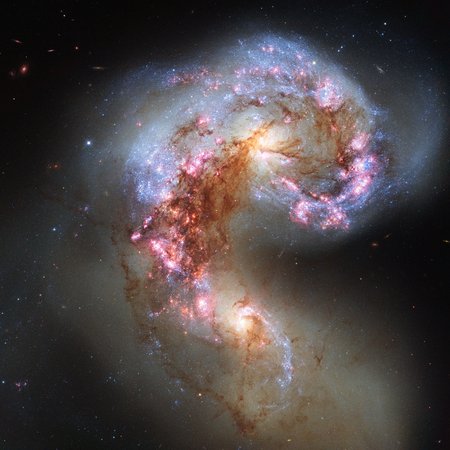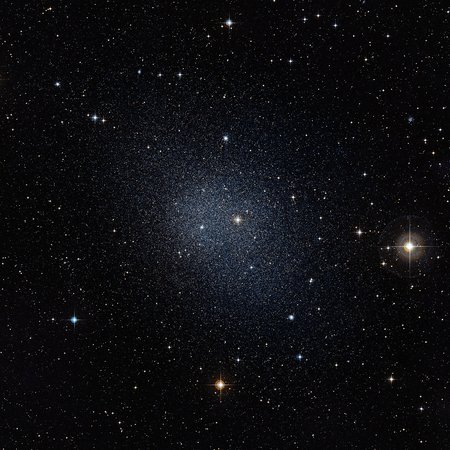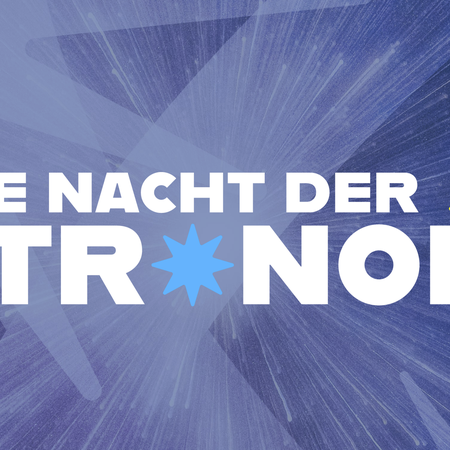Partial solar eclipse on 25 October 2022
Around noon on 25 October 2022, the moon will partially move in front of the Sun. Interested amateur astronomers can observe the partial solar eclipse at the Leibniz Institute for Astrophysics Potsdam (AIP).
From 11 a.m. on, the AIP invites visitors to observe the celestial spectacle on its campus in Babelsberg. The maximum eclipse of 32 percent will be reached at 12:14 p.m., and at 1:19 p.m. the Sun will again be visible in its entirety.
In case of clear skies, visitors can observe the partial solar eclipse with protective glasses or AIP’s telescopes together with scientists from the institute, who are also available for questions. Protective glasses will be available free of charge on site. If clouds make observation difficult, a livestream inside the Schwarzschildhaus will transmit the eclipse from other regions. Visitors can learn interesting facts about the solar eclipse and the Sun in general in lectures at 11 a.m. and 1 p.m. in the auditorium of the Schwarzschildhaus. Please ensure that an FFP2 mask has to be worn indoors. In a guided tour at 12.30 p.m., participating guests can walk on the both historical and modern grounds of the observatory and learn about the history of the institute.
By the way: interested passers-by in the city centre can also watch the partial solar eclipse on Bassinplatz. There, the URANIA Planetarium will be present with a stand and mobile telescopes.
During a partial solar eclipse, the moon moves in front of the Sun, but only partially covers it. Worldwide, this event occurs two to five times a year, but in Germany it will not happen again until 2025. The last total solar eclipse in Germany took place in 1999, and the next one will not be seen until 2081.
We kindly ask larger groups to contact us in advance.
Lectures in the Schwarzschildhaus auditorium (in German):
11a.m.: Dr Christian Vocks "Weltraumwetter – was tut sich da draußen?“
1 p.m.: Dr Alexander Warmuth "Die Rätsel der Korona: Von der Sonnenfinsternis zu Weltraummissionen“
Guided tour of the AIP campus:
12:30 p.m. Meeting point: in front of the Schwarzschildhaus
Further information
Directions to the AIP Babelsberg campus: https://www.aip.de/en/institute/contact/
Around noon on 25 October 2022, the moon will partially move in front of the Sun. Interested amateur astronomers can observe the partial solar eclipse at the Leibniz Institute for Astrophysics Potsdam (AIP).
From 11 a.m. on, the AIP invites visitors to observe the celestial spectacle on its campus in Babelsberg. The maximum eclipse of 32 percent will be reached at 12:14 p.m., and at 1:19 p.m. the Sun will again be visible in its entirety.
In case of clear skies, visitors can observe the partial solar eclipse with protective glasses or AIP’s telescopes together with scientists from the institute, who are also available for questions. Protective glasses will be available free of charge on site. If clouds make observation difficult, a livestream inside the Schwarzschildhaus will transmit the eclipse from other regions. Visitors can learn interesting facts about the solar eclipse and the Sun in general in lectures at 11 a.m. and 1 p.m. in the auditorium of the Schwarzschildhaus. Please ensure that an FFP2 mask has to be worn indoors. In a guided tour at 12.30 p.m., participating guests can walk on the both historical and modern grounds of the observatory and learn about the history of the institute.
By the way: interested passers-by in the city centre can also watch the partial solar eclipse on Bassinplatz. There, the URANIA Planetarium will be present with a stand and mobile telescopes.
During a partial solar eclipse, the moon moves in front of the Sun, but only partially covers it. Worldwide, this event occurs two to five times a year, but in Germany it will not happen again until 2025. The last total solar eclipse in Germany took place in 1999, and the next one will not be seen until 2081.
We kindly ask larger groups to contact us in advance.
Lectures in the Schwarzschildhaus auditorium (in German):
11a.m.: Dr Christian Vocks "Weltraumwetter – was tut sich da draußen?“
1 p.m.: Dr Alexander Warmuth "Die Rätsel der Korona: Von der Sonnenfinsternis zu Weltraummissionen“
Guided tour of the AIP campus:
12:30 p.m. Meeting point: in front of the Schwarzschildhaus
Further information
Directions to the AIP Babelsberg campus: https://www.aip.de/en/institute/contact/
Images
Big screen size [1000 x 942, 110 KB]
Original size [2684 x 2531, 650 KB]





